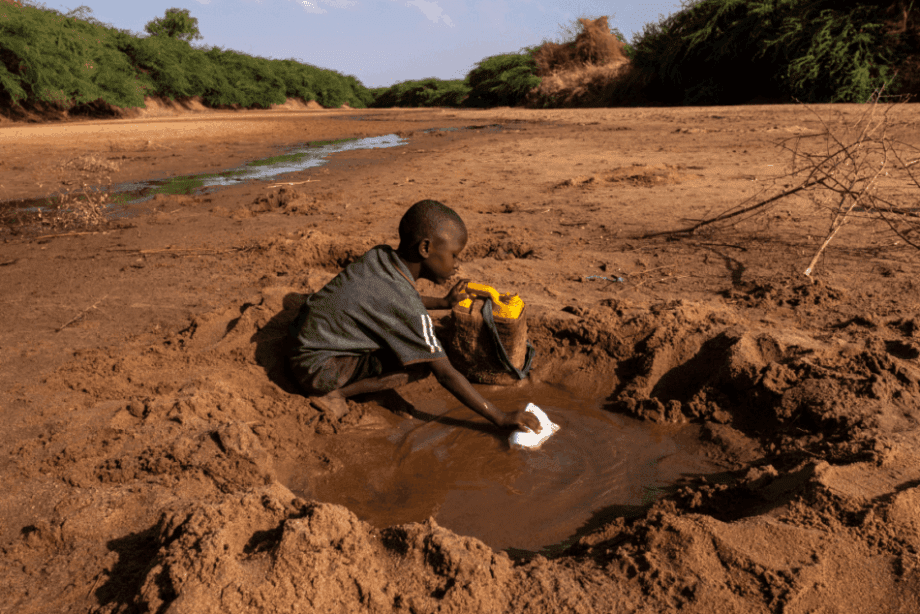As global climate challenges escalate, calls for increased investment in climate services for health are gaining momentum.
At the recent World Health Summit in Berlin, the philanthropic sector demonstrated its growing involvement, with significant financial commitments made to address the health impacts of climate change.
Wellcome announced a US$25 million grant to the World Health Organization (WHO) for activities related to climate change and health, alongside an additional US$6 million to the World Meteorological Organization (WMO). These funds will bolster the joint WMO-WHO Climate and Health Programme, aimed at empowering the health sector with meteorological data to better respond to climate threats.
Alan Dangour, Director of Climate and Health at Wellcome, emphasized the importance of integrating the meteorological and public health sectors, stating that investment in climate and health must embrace both sectors. This integration is critical, given that rising temperatures, extreme weather, and shifting disease patterns are putting unprecedented pressure on health systems worldwide.
WMO Assistant Secretary-General Thomas Asare echoed these concerns, pointing out that despite increasing awareness, climate information is still underutilized in health decision-making. He remarked: “At the World Meteorological Organization, we believe that a cross-sectoral approach that brings together climate science, health policy, and operational decision-making is crucial to overcoming this challenge.”
Health risks from climate change
The health impacts of climate change are well-documented and worsening. Each year, extreme heat claims nearly half a million lives globally. Meanwhile, severe weather events contribute to outbreaks of diseases such as malaria, cholera, and dengue fever. Air pollution exacerbates respiratory diseases, cancer, and even dementia.
Cities are especially vulnerable, with urban populations most exposed to climate-induced health risks. More than half of the world’s population now lives in urban areas, intensifying the need for city-level responses to health threats driven by climate change.
The Rockefeller Foundation and Wellcome Trust have been pivotal in supporting initiatives that address these issues. At COP28, both organizations committed US$100 million to test and scale climate and health solutions. The Rockefeller Foundation recently launched a report, Urban Climate-Health Action: A New Approach to Protecting Health in the Era of Climate Change, which outlines critical gaps in city-level responses to climate-induced health risks. This report advocates for stronger partnerships between meteorology and health sectors, particularly in urban areas.
The collaboration between WHO and WMO seeks to bridge the gap between climate science and public health. Together, the two organizations are advancing integrated climate-health science and services to protect human health from environmental hazards. Their work spans climate, air quality, water security, solar radiation, and extreme weather events.
The WMO’s 2023–2033 Implementation Plan for Advancing Climate, Environment, and Health Science and Services focuses on a coordinated approach to generating and applying climate knowledge for health decision-making. The plan promotes collaboration between member states, leveraging resources to meet the growing demand for climate expertise in health policy.
WMO’s State of Climate Services for Health report (2023), developed with WHO, highlighted the untapped potential of climate science to inform health decisions. National Meteorological Services play a critical role in this process, providing reliable data and early warnings to help health systems prepare for climate-related risks.
Philanthropic support is increasingly essential to scaling these efforts. In addition to the grants from Wellcome, the Rockefeller Foundation has provided support to the WMO-WHO Joint Office on Climate and Health, particularly in exploring global digital tools for integrating climate and health monitoring.
A workshop in September 2024, hosted by the Rockefeller Foundation alongside WMO and Wellcome, brought together over 75 technical partners to advance scalable, interoperable systems for climate-informed health decision-making.
“With these new resources from philanthropic partners, we hope to drive a transformation in the application of climate science from ad-hoc successes at the project level, to system-based solutions that support decision-making in health policy and practice at scale,” said Joy Shumake-Guillemot, head of the Joint Climate and Health Programme. These services, she noted, are essential in responding to the growing demand for climate and weather data from countries looking to protect vulnerable communities.
The Global Heat crisis
One of the WMO-WHO Joint Office’s key priorities is addressing extreme heat, which remains one of the most pressing health risks related to climate change.
Last year, communities on every continent experienced intense, prolonged heatwaves. More than ten countries recorded temperatures above 50°C in multiple locations, with many areas facing dangerously high overnight temperatures. The mortality toll from extreme heat is believed to be underreported, with WHO and WMO calling for enhanced heat-health surveillance and action plans.
In response to the growing threat of heat, the UN Secretary-General issued a call to action on Extreme Heat in July, supported by WMO, WHO, and the Global Heat Health Information Network. According to WHO-WMO analysis, expanding heat-health warning systems in 57 countries could save nearly 100,000 lives.
The Intergovernmental Panel on Climate Change (IPCC) warns that cities are particularly vulnerable to extreme heat. Urbanization amplifies the local effects of heat, compromising air quality, increasing fire risk, and heightening water insecurity. Without sound climate information to guide civil protection and urban planning, millions of urban residents remain at risk from these climate-driven health threats.
Article Source: WMO
Featured image: A young boy collects what little water he can from a dried up river due to severe drought, Dollow Somalia. Credit: Sebastian Rich | Somalia UNICEF




